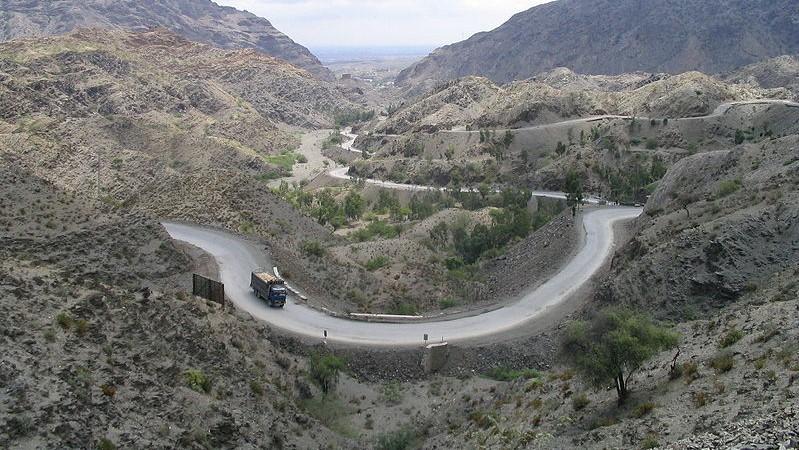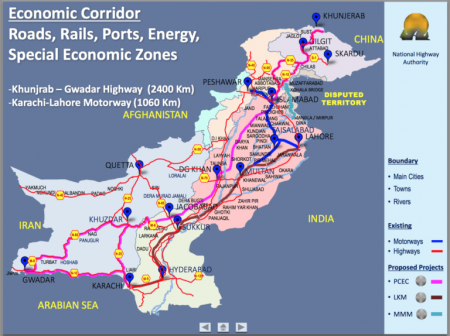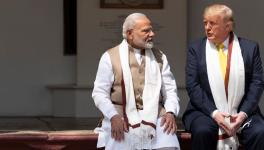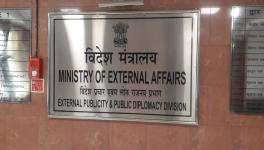CPEC to Traverse the Durand Line

Image Courtesy: Wikipedia
The 2nd Afghanistan-China-Pakistan Foreign Ministers’ Dialogue, which took place in Kabul on Saturday, largely covered familiar ground – reaffirming the commitment of the three countries to strengthen their relations, resolutely fight terrorism, support Afghan reconciliation, extend support to Afghan-owned and Afghan-led peace process, exhort Taliban to come to peace talks, foster security cooperation and counter-terrorism and so on.
But two things were striking. First, the meet took place on the eve of the talks between the US officials and Taliban representatives slated for December 17, which Pakistan has facilitated. PM Imran Khan acknowledged Pakistan’s role as facilitator. This follows President Trump’s letter to Imran Khan seeking Pakistani cooperation and the latest visit to Islamabad by the US special representative on Afghanistan Zalmay Khalilzad. There are conflicting reports that the meeting on Monday may take place in Islamabad or Dubai. The US has hailed Pakistan’s role in arranging the peace talks.
Second, more importantly, the joint statement issued after the trilateral foreign ministers meet in Kabul yesterday suggests that some major Chinese-aided projects are on the anvil under the rubric of the Belt and Road Initiative. The joint statement highlighted the commitment of the three countries for “advancing connectivity under the Belt and Road Initiative” and, specifically “to promote China-Afghanistan-Pakistan trilateral cooperation under the framework of jointly building the Belt and Road Initiative.”
A Xinhua report cited Chinese Foreign Minister Wang Yi as telling the media after the talks in Kabul that the three countries have agreed “to promote the construction of the China-proposed Belt and Road Initiative in a bid to boost regional connectivity and economic development.” Furthermore, Wang noted that China and Pakistan “supported Afghanistan to make itself a regional pivot by giving a full play of its geographical advantages and to benefit from regional cooperative projects including the China-Pakistan Economic Corridor.”
The joint statement singled out that “China supports enhanced coordination between Afghanistan and Pakistan on major energy and connectivity projects including the construction of Quetta-Kandahar railway and Kabul-Peshawar Motorway and Railway. The three sides reiterated their firm commitment to implement the activities and projects agreed to under practical cooperation.”
Clearly, China-Pakistan Economic Corridor (CPEC) is slouching toward the Khyber Pass and Spin Boldak border town to take a leap across the Durand Line. What has been in the realm of statements so far is beginning to assume flesh and blood. No doubt, it is a poignant moment in the turbulent history of the region. Lord Curzon, the Viceroy of India, once said, “Waziristan (tribal agency on Pakistan-Afghan border) is beyond control. What they need is the steamroller – a steamroller to go from one end to the other end to completely crush them. But I will not be the steamroller.”
Will China provide that steamroller but with velvet touch? Simply put, it is a signal victory for Chinese diplomacy to push through the proposed rail and roadways connecting Quetta with Kandahar and Peshawar with Kabul. The communication links will run through regions where a large swath of territory is under Taliban control. China will almost certainly provide the bulk of the funding for these projects. The proposed projects will provide transportation routes for southern and eastern Afghanistan to Gwadar Port. The projects will open up hitherto remote regions to the world market. The economic spin-off will be huge for both Afghanistan and Pakistan.

China-Pakistan Economic Corridor
In strategic terms, CPEC becomes an underpinning of Afghanistan’s stability. This fits in with the Chinese dictum that an enduring solution to terrorism and separatism lies in economic development. We may anticipate that in the second phase, China will carry forward the trans-Afghan communication links to connect Pakistan with the Central Asian region (Tajikistan, Uzbekistan and Turkmenistan.) There is already much anticipation on this score. Read two recent reports, hereand here, on the potentials for boosting direct trade between Uzbekistan and Pakistan.
Quite obviously, these developments would incrementally take care of the Durand Line issue, too. The international community on the whole will welcome such a trend auguring a new phase in Afghan-Pakistani relations, which would strengthen regional security and stability.
The first round of the FM-level China-Afghan-Pakistan Dialogue was held in Beijing in December 2017. Its notable outcome was the framework known as the Afghanistan-Pakistan Action Plan for Peace and Solidarity. At the meet in Kabul yesterday, Afghanistan and Pakistan signed a memorandum of understanding on anti-terrorism cooperation. Chinese FM noted that Beijing is making efforts to bring Pakistan and Afghanistan closer. China anticipates that reconciliation with the Taliban is now a matter of time and the US is, finally, jettisoning the notion that there could be a military solution to the Afghan problem. Accordingly, China is positioning itself for the post-conflict Afghan paradigm.
Against the backdrop of the above developments, Delhi must take serious note of the recent statement by the Pakistani Foreign Minister Shah Mehmood Qureshi last week seeking India’s cooperation in the efforts to bring peace in Afghanistan. Qureshi said, “Since India is present in Afghanistan, its cooperation in this regard will also be required.” This is the first time such an overture has been made and it also signals that Taliban would welcome Indian help for Afghan reconstruction.
(This article also appeared in India Punchline.)
Get the latest reports & analysis with people's perspective on Protests, movements & deep analytical videos, discussions of the current affairs in your Telegram app. Subscribe to NewsClick's Telegram channel & get Real-Time updates on stories, as they get published on our website.
























